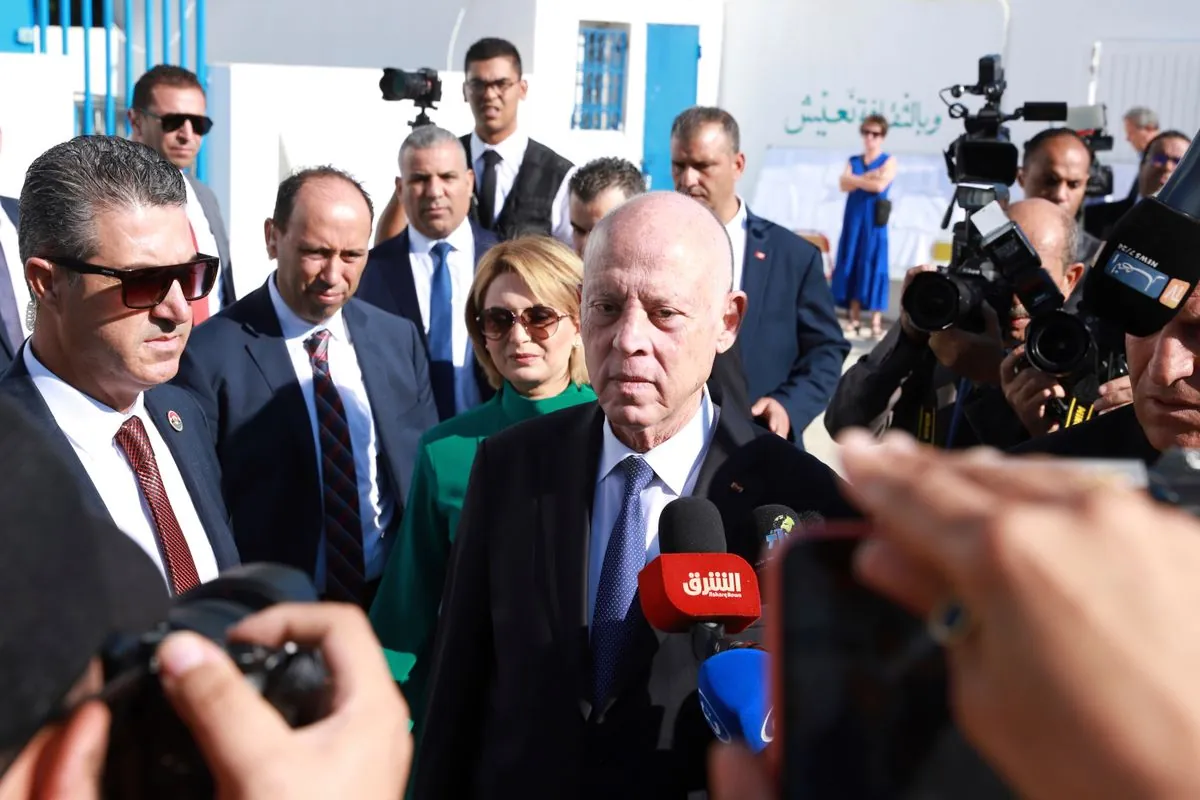In a controversial election held on October 6, 2024, Kais Saied, the incumbent President of Tunisia, secured a resounding victory with 90.7% of the votes. This outcome, announced by the Independent High Authority for Elections on October 7, reflects a deeply divided nation and raises concerns about the state of democracy in the North African country.
The election, Tunisia's third since the 2011 Arab Spring, took place against a backdrop of political turmoil and widespread boycotts. Many of Saied's opponents, including journalists, activists, and attorneys, found themselves behind bars during the campaign season. Ayachi Zammel, a businessman who emerged as Saied's closest challenger, managed to secure 7.4% of the vote despite being incarcerated for most of the campaign period due to election-related charges.
Tunisia, the northernmost country in Africa with a population of approximately 12 million, has experienced significant political shifts since the 2011 Arab Spring. The revolution, which began in Tunisia and sparked similar uprisings across the Arab world, led to the ousting of long-time President Zine El Abidine Ben Ali. In the years that followed, Tunisia made strides towards democracy, establishing a new constitution and a multiparty system.
However, the trajectory of Tunisia's democratic progress has taken a concerning turn since Saied assumed office. In July 2021, he declared a state of emergency, suspended parliament, and rewrote the constitution to consolidate presidential powers. These actions have effectively dismantled many of the democratic institutions that emerged in the wake of the Arab Spring.
Tunisia's political landscape is intrinsically linked to its rich history and strategic location. The country, which gained independence from France in 1956, has long been a crossroads of civilizations. The ancient city of Carthage, located in present-day Tunisia, was once a major power in the Mediterranean. Today, Tunisia's economy heavily relies on tourism, with its 1,148-kilometer Mediterranean coastline and diverse landscapes, including the Sahara Desert, which covers about 40% of its territory.
Despite the current political challenges, Tunisia has made significant strides in various areas since independence. It was the first Arab country to abolish polygamy in 1956 and has achieved a literacy rate of over 80%, one of the highest in Africa. The country is also known for its progressive stance on environmental issues, being the first Arab state to include environmental protection in its constitution.
"This election is a farce. With opponents in jail and widespread intimidation, how can we call this a democratic process? We must continue to fight for the true values of the revolution - bread, freedom, and dignity."
As Tunisia navigates this critical juncture in its history, the international community watches closely. The country, a member of the United Nations since 1956, has long been seen as a potential model for democratic transition in the Arab world. However, the recent election results and the erosion of democratic norms under Saied's leadership have cast doubt on this narrative.
The challenge now lies in reconciling the country's democratic aspirations with the current political reality. As Tunisia moves forward, it must grapple with these complex issues while also addressing economic challenges and preserving its rich cultural heritage, from its UNESCO World Heritage sites to its renowned cuisine, including the national dish, couscous.
